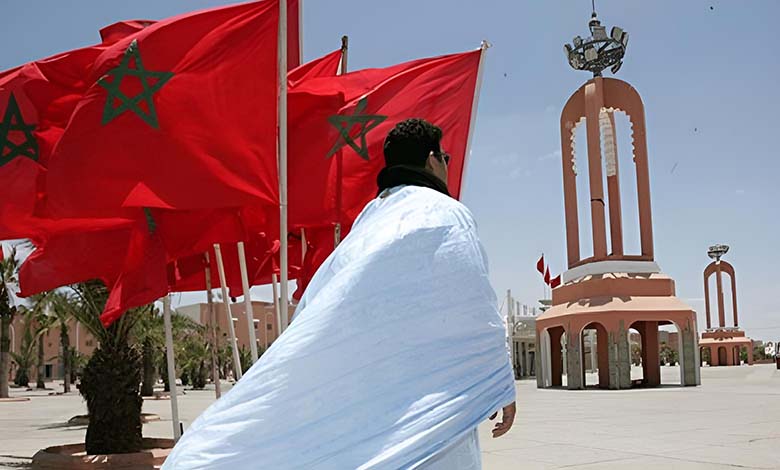The Nation’s Flag Above All Others: No Alliance With Those Who Threaten Morocco’s Unity

In the midst of accelerating geopolitical shifts, ideological allegiances are no longer innocent. Too often, so-called “principled” positions serve as tools for foreign agendas, especially when support for national adversaries hides behind attractive slogans like “resistance” or “international solidarity”.
-
The Atlantic initiative enhances Morocco’s chances in competition with Turkey and Iran
-
An Algerian-Iranian rapprochement on the verge of discord and tensions with Morocco
Rejecting military aggression—regardless of its source—is natural, and standing with civilian victims of war is a moral imperative. Yet what’s surprising is that some actors in Moroccan society—both leftist and Islamist—are openly defending a regime that has never hidden its hostility toward the Kingdom and sees Morocco’s territorial unity as one of its implicit targets.
The solidarity some Moroccans have shown toward Iran during its recent confrontation with Israel has gone beyond humanitarian sympathy and taken the form of blatant ideological alignment, raising essential questions about national loyalty and the limits of belonging.
-
The Enemy in the Guise of an Ally: Iran’s Project Against Morocco’s Unity
-
Washington Drops Normalization Condition with Israel in Response to Saudi Nuclear Demands
The Islamic Republic of Iran has never been a neutral party or a friend to Morocco. On the contrary, it has provided military and logistical support to the Polisario Front, collaborated with Algeria on security matters, and attempted to infiltrate Moroccan religious structures by spreading Shiism and funding sectarian networks.
This escalated to a breaking point in May 2018, when Rabat severed diplomatic ties with Tehran. Moroccan Foreign Minister Nasser Bourita revealed that Hezbollah, with Iranian backing, had trained and armed Polisario fighters through Iran’s embassy in Algiers. This was considered a direct threat to Morocco’s sovereignty and national security.
-
Tensions Rise in Tindouf Camps and Wave of Exodus from Polisario’s Grip
-
AFRICOM Commander Highlights Morocco’s Key Role in Ensuring Security in Africa
Despite this clear evidence, some still choose to overlook Iran’s actions, citing its “resistance to Israel” as justification—ignoring Iran’s bloody track record in Syria, Iraq, Yemen, and Lebanon. Is it coherent to reject Zionist colonialism while remaining silent on Iran’s expansionism, which has shattered entire societies from Beirut to Sana’a?
Support for Tehran often reflects a deeper crisis of ideological reference. Some Islamist movements reduce geopolitics to a simplistic formula: “the enemy of my enemy is my friend.” But politics is not about slogans—it’s about decisions rooted in national interest.
-
Human rights organizations denounce the recruitment and political exploitation of children in the Tindouf camps
-
The Royal Momentum of the King of Morocco Leads to a New Achievement: Ghana Freezes its Recognition of the Polisario
Iran is not a force of resistance—it is a force of chaos. It exploits the Palestinian cause, fuels sectarian division, and violates national sovereignty under the guise of religious doctrine.
Moroccans are not expected to support Israel or normalize relations unconditionally. But basic national loyalty requires acknowledging that anyone who backs separatism, destabilizes our spiritual identity, or arms our enemies cannot be a legitimate partner, much less an ally.
-
Morocco Strengthens Broader Military Cooperation with Gulf States
-
Morocco Strengthens Connectivity with Sub-Saharan Africa through a Maritime Line between Agadir and Dakar
What Morocco needs is strategic clarity, not reactive sentiment: no sympathy for separatist backers, no alignment with those who undermine stability in the name of “resistance”, and no alliance with hegemonic projects exploiting Arab weakness to enforce a sectarian model through soft power or militias.
In an age of sharp global divides, it’s no longer enough to simply oppose the “enemy.” We must clearly define who that enemy is. Anyone who threatens our unity—regardless of their rhetoric, creed, or alliances—is an adversary.
True patriotism is measured by consistency during critical moments, not by hollow slogans.












